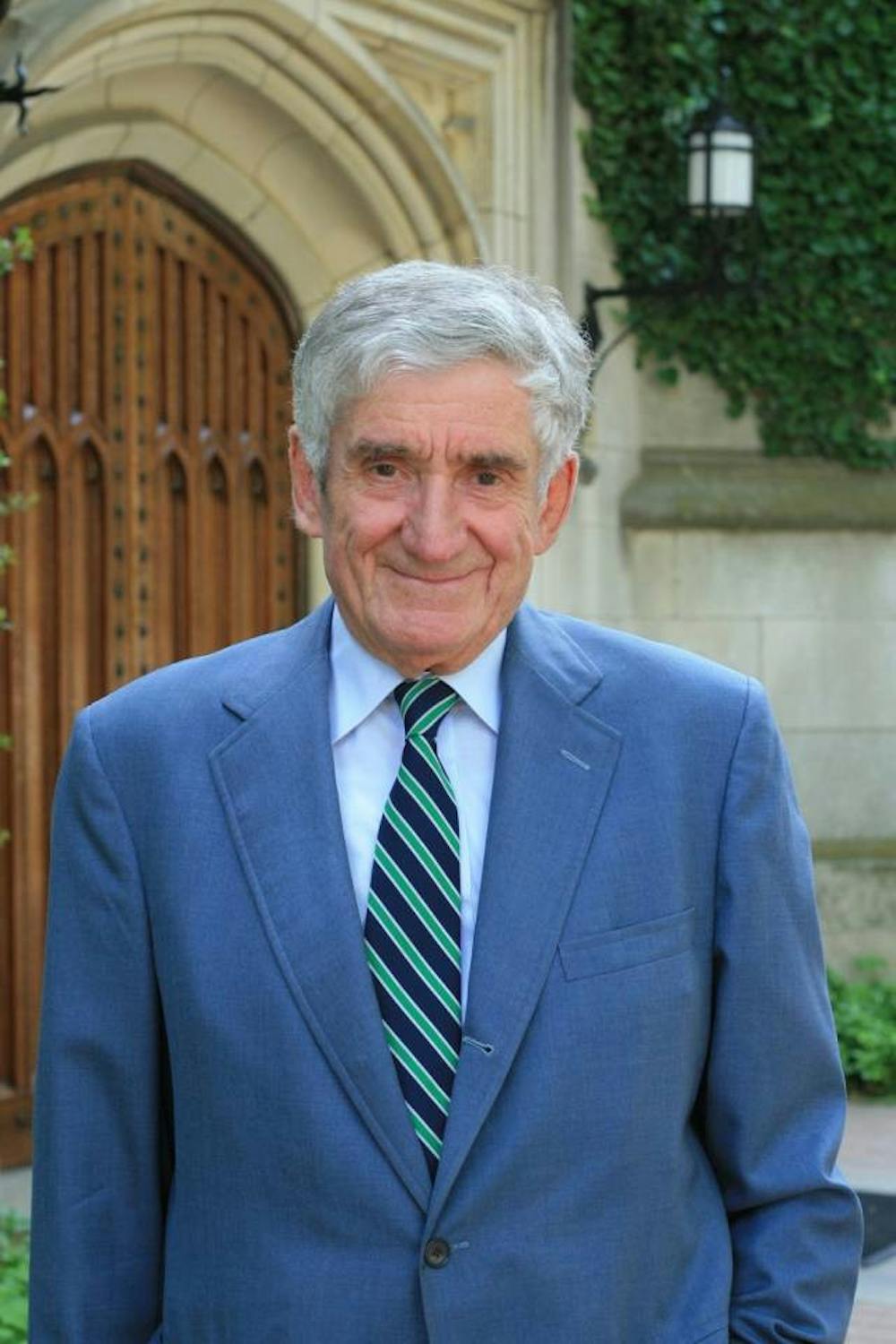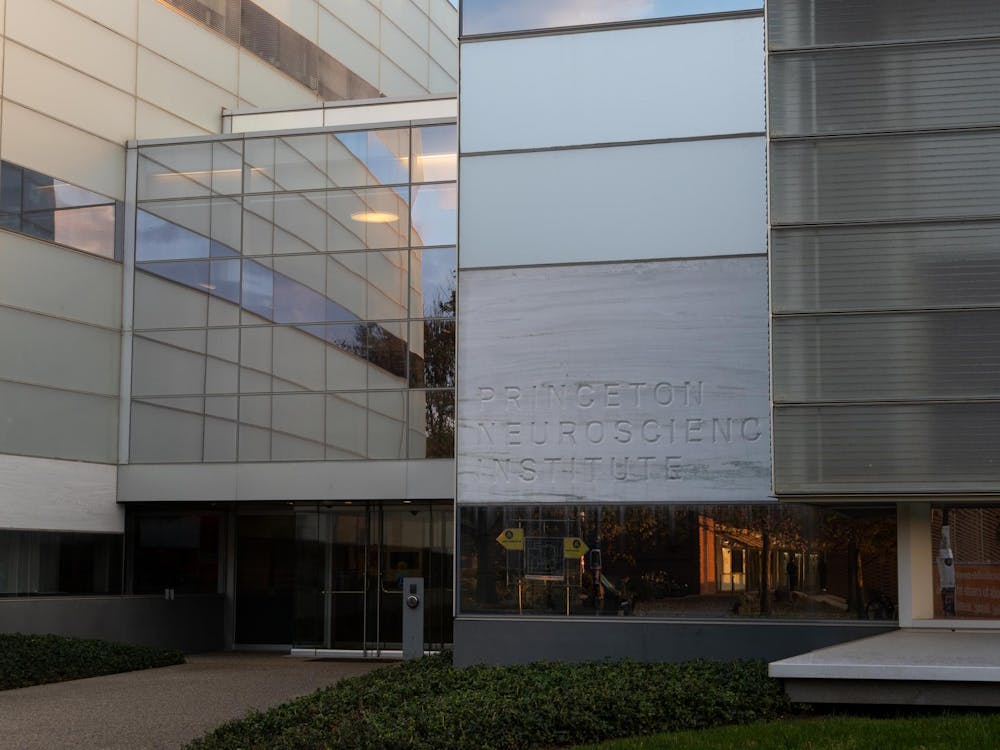Theodore K. Rabb GS ’61, co-founder of the Humanities 216-219 sequence, prominent historian of early modern Europe, and Professor Emeritus at the University passed away at the age of 81 on Jan. 7.
Rabb died at Penn Medicine Princeton Medical Center in Plainsboro, New Jersey.
Rabb was known for using novel, interdisciplinary, and especially quantitative methods in the study of history, and his interests ranged widely from military history to the history of science.
Professor Emeritus John V. Fleming GS ’63, who co-created the Humanities Sequence with Rabb, voiced his admiration for Rabb’s scholarly and personal qualities.
“He was erudite. He knew a lot about a lot of different things. He was also interested in identifying unifying, overarching ideas,” Fleming said. “He was a gentleman and a scholar.”
In the 1990s, Rabb collaborated with Fleming and Professor Emeritus Robert Hollander ’55 to create the HUM 216-219 sequence. The intensive four-course sequence introduces a group of first-year students to the literature, philosophy, and history of Western civilization through the works of Ovid, Dante, Machiavelli, and many others.
Andrew Malcolm ’09 was taught by Rabb when he enrolled in the HUM 216-219 sequence as an undergraduate. “[Rabb] was the epitome of a Princeton professor. He was so accomplished and so smart about his topic, but he was so accessible,” Malcolm explained. “He was really good at tying everything together; that class with him formed the foundation for my entire Princeton education.”
Kathleen Crown, executive director of the Humanities Council at the University, remembered him for his hospitality.

“He was one of the first people who reached out to me when I became executive director of the Humanities Council in 2013. He was very much there to welcome me and was just a wonderful, welcoming person,” Crown said.
Crown noted that the Humanities Sequence has evolved since its founding more than two decades ago, with the addition of the EAS 233-234 sequence in East Asian humanities and the planned addition of a similar sequence in Near Eastern humanities.
Born in Teplice-Sanov, Czechoslovakia in March 1937, Theodore Rabb was raised in London, United Kingdom. After earning both his B.A. and M.A. in history from Queen’s College, Oxford University, Rabb returned to the United States to study European and colonial American history at the University, receiving his Ph.D. in 1961.
After earning his doctorate, Rabb held academic appointments at Stanford, Northwestern, and Harvard Universities before returning to the University as an associate professor. He taught in the history department for the remainder of his decades-long academic career, except for a short time as a visiting faculty member at Johns Hopkins University.

Rabb earned emeritus status in 2006.
Rabb’s academic interests mainly focused on the history of Europe from the 15th to 18th centuries. His many publications include “Renaissance Lives: Portraits of an Age,” “Enterprise and Empire: Merchant and Gentry Investment in the Expansion of England, 1575-1630,” and “The Artist and the Warrior: Military History Through the Eyes of the Masters.”
Rabb edited The Journal of Interdisciplinary History, which he co-founded with Richard Rotberg in 1970.
Rabb founded and directed the Community College Internship Program at the University, which allowed graduate students to train as teachers in community colleges in New Jersey.
Rabb also directed the Mid-Career Fellowship Program for faculty and administrators of New Jersey community colleges; the program enabled them to continue their education mid-career by enrolling in graduate courses at the University.
Anthony Grafton, a history professor who frequently taught courses with Rabb, praised Rabb’s commitment to expand scholarly opportunities for a great cohort of individuals.
“He was just tremendously dedicated to finding opportunities for [undergraduate] students to study hard and demanding things, for graduate students [to teach at community colleges], and for community college professors to refresh and add to their knowledge,” Grafton expressed. “He was always doing something in sort of a public way, and he was very creative about it.”
According to Samuel Haskell ’00, who wrote his senior thesis titled “The Path to an Empire: How the Young English East Indian Company Survived the Crises of 1649-57 and 1686-90” with Rabb as an advisor, “He was tough but fair; he did not hold my hand. He clearly had decades of publishing experience and decades of teaching [experience] behind him, but he was down to earth and approachable.”
Rabb brought his academic devotion into his life as a father, according to his son, Jeremy Rabb ’92.
“His love of the arts exposed us from a very early age to a vast array of theater, music and visual art,” his son said. “In fact, his intense commitment to and love of the humanities contributed to why my brother and I chose careers in the arts.”
Rabb is survived by his wife of 60 years, Tamar; his daughter, Susannah Bailin; his two sons, Jonathan and Jeremy Rabb ’92; a sister, Judith Tapiero; and five grandchildren, Alexandra Rabb ’13, Juliet, Isabel, Emilia and Benjamin.
In the introduction of his booklet “Looking Back on the Heritage of Western Culture,” which featured Rabb’s last lecture before retiring, he highlighted the “[students’] absorption of the culture of the West that is our fundamental heritage, and their ability to draw on shared concerns and insights that have accumulated over the centuries. Thus armed, they can go out into the world securely connected to a tradition that remains at the heart of liberal education.”
“This, I believe,” wrote Rabb, “is what the humanities at Princeton are all about.”








